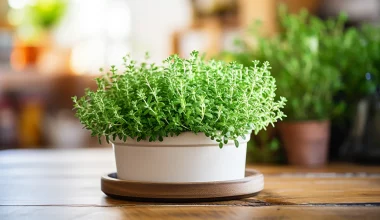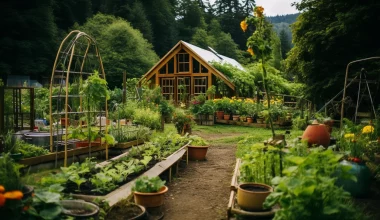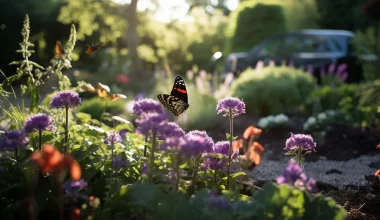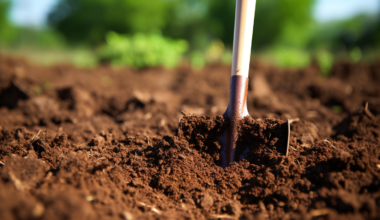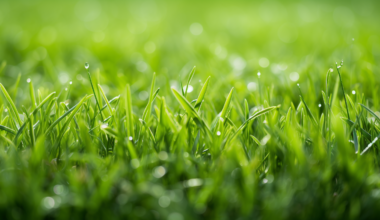- IntroductionGardening enthusiasts understand that soil management is vital for a thriving garden. Choosing the right mulch is a crucial step in maintaining soil health, controlling weeds, conserving moisture, and improving the garden’s overall appearance. In this guide, we’ll explore different mulch types and how to choose the best one for your garden.What is Mulch?Mulch is a protective layer spread over the soil’s surface to preserve moisture, improve fertility, and reduce weed growth. It can be made from various organic or inorganic materials, and the choice depends on your specific gardening needs and preferences.Organic MulchesOrganic mulches decompose over time, enriching the soil with nutrients. Some popular organic mulch options include:Bark Chips Best For: Flower beds, trees, and shrubs. Benefits: Slow decomposition, provides a rustic look. Straw Best For: Vegetable gardens. Benefits: Affordable and excellent for retaining moisture. Composted Manure Best For: Enriching soil with nutrients. Benefits: Boosts plant growth but should be used with care to avoid burning plants. Inorganic MulchesInorganic mulches don’t decompose, so they don’t provide nutrients but offer other advantages:Gravel or Stone Best For: Drought-resistant plants, pathways. Benefits: Long-lasting and provides a modern appearance. Plastic or Fabric Best For: Weed control in vegetable gardens. Benefits: Effective at preventing weed growth but not aesthetically pleasing. How to Choose the Right MulchWhen choosing the right mulch for your garden, consider the following factors: Garden Type: Different gardens require different mulches. What works for a vegetable garden might not be suitable for a flower bed. Soil Needs: If your soil needs nutrients, opt for organic mulch. For weed control without additional nutrients, inorganic mulch may be better. Climate Considerations: In wet climates, you might prefer bark or straw. In drier areas, stone mulch can be an excellent choice. Aesthetic Preferences: Consider the visual impact of the mulch. Bark and stone can add decorative touches. Budget: Organic mulches like straw are usually more affordable, while stone mulch can be more costly. ConclusionChoosing the right mulch is not just about suppressing weeds; it’s about enhancing your garden’s overall health and appearance. By understanding the various types of mulch and considering your garden’s specific needs, you can select the perfect mulch to nourish your plants and beautify your outdoor space. Whether it’s the rustic charm of bark chips or the modern sleekness of gravel, the right mulch can make all the difference in your garden’s success.
- What is Mulch?
- Organic Mulches
- Inorganic Mulches
- How to Choose the Right Mulch
- Conclusion
Introduction
Gardening enthusiasts understand that soil management is vital for a thriving garden. Choosing the right mulch is a crucial step in maintaining soil health, controlling weeds, conserving moisture, and improving the garden’s overall appearance. In this guide, we’ll explore different mulch types and how to choose the best one for your garden.
What is Mulch?
Mulch is a protective layer spread over the soil’s surface to preserve moisture, improve fertility, and reduce weed growth. It can be made from various organic or inorganic materials, and the choice depends on your specific gardening needs and preferences.
Organic Mulches
Organic mulches decompose over time, enriching the soil with nutrients. Some popular organic mulch options include:
Bark Chips
- Best For: Flower beds, trees, and shrubs.
- Benefits: Slow decomposition, provides a rustic look.
Straw
- Best For: Vegetable gardens.
- Benefits: Affordable and excellent for retaining moisture.
Composted Manure
- Best For: Enriching soil with nutrients.
- Benefits: Boosts plant growth but should be used with care to avoid burning plants.
Inorganic Mulches
Inorganic mulches don’t decompose, so they don’t provide nutrients but offer other advantages:
Gravel or Stone
- Best For: Drought-resistant plants, pathways.
- Benefits: Long-lasting and provides a modern appearance.
Plastic or Fabric
- Best For: Weed control in vegetable gardens.
- Benefits: Effective at preventing weed growth but not aesthetically pleasing.
How to Choose the Right Mulch
When choosing the right mulch for your garden, consider the following factors:
- Garden Type: Different gardens require different mulches. What works for a vegetable garden might not be suitable for a flower bed.
- Soil Needs: If your soil needs nutrients, opt for organic mulch. For weed control without additional nutrients, inorganic mulch may be better.
- Climate Considerations: In wet climates, you might prefer bark or straw. In drier areas, stone mulch can be an excellent choice.
- Aesthetic Preferences: Consider the visual impact of the mulch. Bark and stone can add decorative touches.
- Budget: Organic mulches like straw are usually more affordable, while stone mulch can be more costly.
Conclusion
Choosing the right mulch is not just about suppressing weeds; it’s about enhancing your garden’s overall health and appearance. By understanding the various types of mulch and considering your garden’s specific needs, you can select the perfect mulch to nourish your plants and beautify your outdoor space. Whether it’s the rustic charm of bark chips or the modern sleekness of gravel, the right mulch can make all the difference in your garden’s success.

